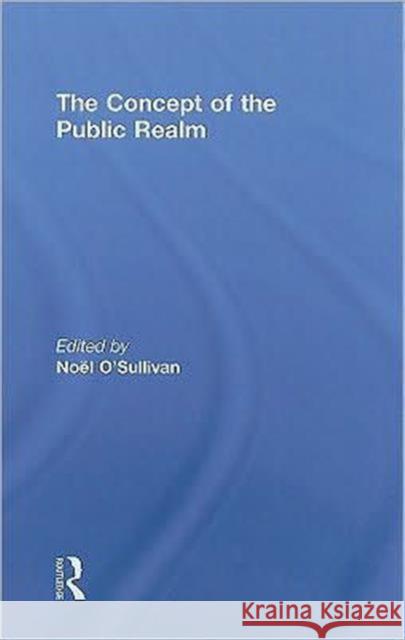The Concept of the Public Realm » książka
The Concept of the Public Realm
ISBN-13: 9780415448314 / Angielski / Twarda / 2009 / 222 str.
The Concept of the Public Realm
ISBN-13: 9780415448314 / Angielski / Twarda / 2009 / 222 str.
(netto: 717,11 VAT: 5%)
Najniższa cena z 30 dni: 654,86
ok. 16-18 dni roboczych.
Darmowa dostawa!
In its political form, the existence of a public realm is the basis of a shared relationship between rulers and ruled which makes politics more than mere power or domination. How to construct and maintain a public realm in the political sphere is, however, a matter of especial dispute at the present day, due partly to the increasing difficulty of making the distinction between public and private spheres which has been the basis of Western liberal democracy; partly to the tendency of public concerns to be identified with economic interests, which transforms citizens into consumers; partly to pressure for the acknowledgement of diversity of every kind, which creates the danger of fragmenting the public realm; and partly to globalization processes which have undermined the traditional identification of the public realm with national political institutions. Globalization has, in addition, raised the question of whether there can be a supra-national public realm and, more generally, of what form it is likely to assume in non-Western cultures. These are amongst the fundamental contemporary issues addressed by contributors to the present volume. This book was published as a special issue of the Critical Review of International, Social and Political Philosophy.
In its political form, the existence of a public realm is the basis of a shared relationship between rulers and ruled which makes politics more than mere power or domination. How to construct and maintain a public realm in the political sphere is, however, a matter of especial dispute at the present day, due partly to the increasing difficulty of making the distinction between public and private spheres which has been the basis of Western liberal democracy; partly to the tendency of public concerns to be identified with economic interests, which transforms citizens into consumers; partly to pressure for the acknowledgement of diversity of every kind, which creates the danger of fragmenting the public realm; and partly to globalization processes which have undermined the traditional identification of the public realm with national political institutions. Globalization has, in addition, raised the question of whether there can be a supra-national public realm and, more generally, of what form it is likely to assume in non-Western cultures. These are amongst the fundamental contemporary issues addressed by contributors to the present volume.
This book was published as a special issue of the Critical Review of International, Social and Political Philosophy.











